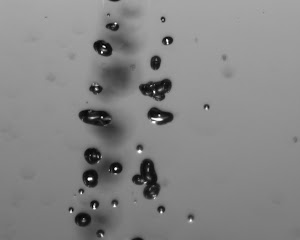The Seven Sisters consisted of three companies formed by the break up by the U.S. Government of Standard Oil, along with four other major oil companies. With their dominance of oil production, refinement and distribution, they were able to take advantage of the rapidly increasing demand for oil and turn immense profits.
Being well organized and able to negotiate as a cartel, the Seven Sisters were able to have their way with most Third World oil producers. It was only when the Arab states began to gain control over oil prices and production, mainly through the formation of OPEC, beginning in 1960 and really gaining power by the 1970s, that the Seven Sisters' influence declined.
The Seven Sisters were the following companies:
1. Standard Oil of New Jersey (Esso), which merged with Mobil to form ExxonMobil.
2. Royal Dutch Shell (Anglo-Dutch)
3. Anglo-Persian Oil Company (APOC) (British). This later became Anglo-Iranian Oil Company (AIOC), then British Petroleum, and then BP Amoco following a merger with Amoco (which in turn was formerly Standard Oil of Indiana). It is now known solely by the initials BP.
4. Standard Oil Co. of New York ("Socony"). This later became Mobil, which merged with Exxon to form ExxonMobil.
5. Standard Oil of California ("Socal"). This became Chevron, then, upon merging with Texaco, ChevronTexaco. It has since dropped the 'Texaco' suffix, returning to Chevron.
6. Gulf Oil. In 1985 most of Gulf became part of Chevron, with smaller parts becoming part of BP, and Cumberland Farms, in what was at that time the largest merger in world history. A network of stations in the northeastern United States still bears this name.
7. Texaco. Merged with Chevron in 2001. The merged company was known for a time as ChevronTexaco, but in 2005 it changed its name back to Chevron. Texaco remains as a Chevron brand name.
As of 2005, the surviving companies are ExxonMobil, Chevron, Shell, and BP, now members of the "supermajors" group.
The "New Seven Sisters"
On 11 March 2007, the Financial Times identified the "New Seven Sisters": the most influential and mainly state-owned national oil and gas companies from countries outside the OECD. They are:
1. Saudi Aramco (Saudi Arabia), formerly Aramco
2. JSC Gazprom (Russia)
3. CNPC (China)
4. NIOC (Iran)
5. PDVSA (Venezuela)
6. Petrobras (Brazil)
7. Petronas (Malaysia)
We are traders of our oil products directly with the aim to connect our serious buyers to our real and genuine sellers for the oil and gas trading and exportations. Our main task is to link suppliers with end buyers for every single successful deal.
If you know you are a serious buyer regarding any purchases of Crude Oil, Mazut, Rebco and Jet Fuel. Please contact us for the most competitive price, and service available Contact Us.
For Best Deal Request :
zaka.cheriatna@gmail.com
+62-21-73888872
Indonesia
If you know you are a serious buyer regarding any purchases of Crude Oil, Mazut, Rebco and Jet Fuel. Please contact us for the most competitive price, and service available Contact Us.
For Best Deal Request :
zaka.cheriatna@gmail.com
+62-21-73888872
Indonesia

Loading...
Thursday
Subscribe to:
Post Comments (Atom)
Kata-kata Hikmah..!
Jelang Pemilu, Jangan Golput !
Di Pemilu 2009



No comments:
Post a Comment